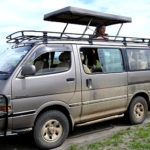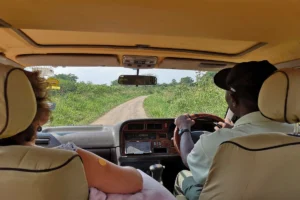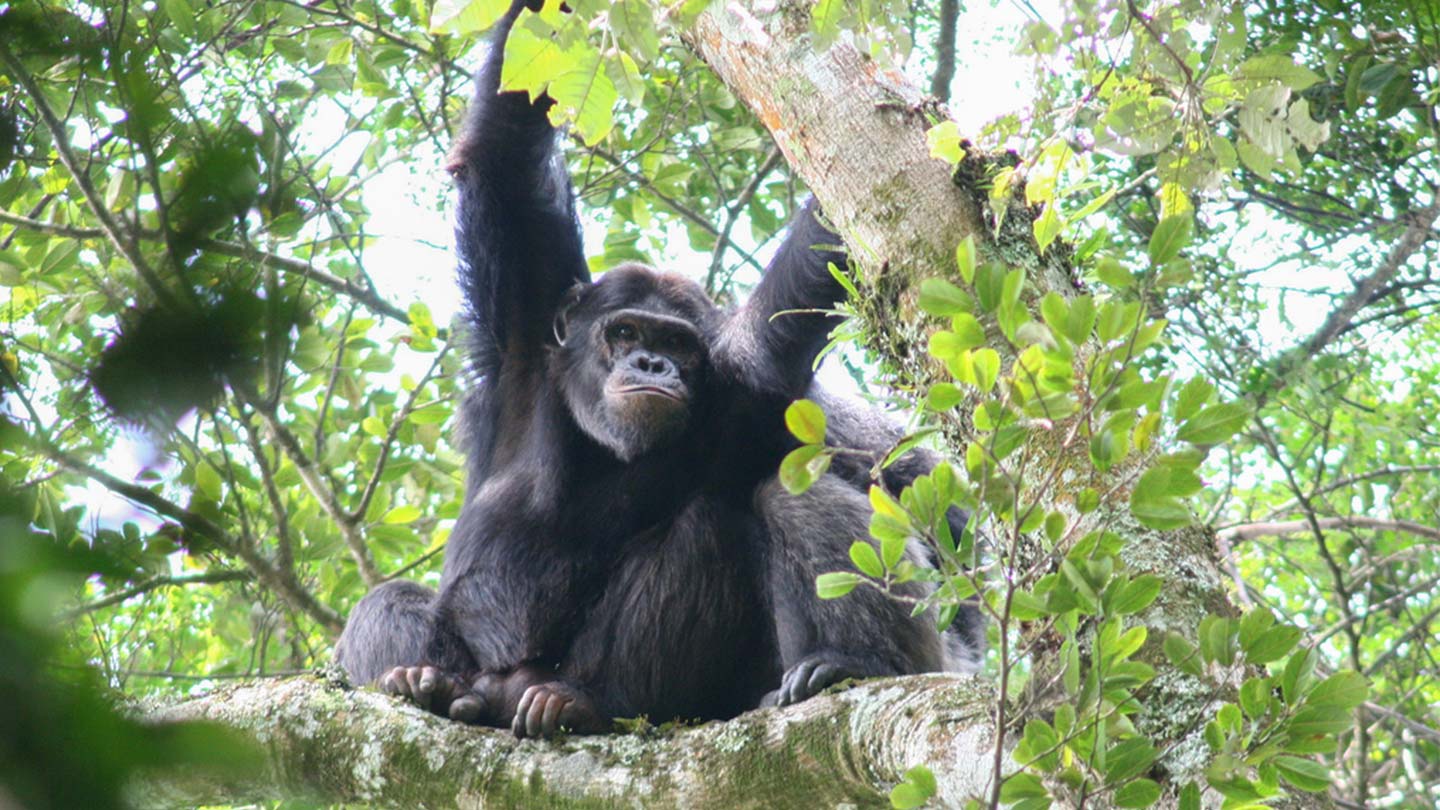
Beyond the famous mountain gorillas, Rwanda harbors another extraordinary primate that shares 98.7% of human DNA—the common chimpanzee. Chimpanzee tracking in Nyungwe Forest National Park offers one of Africa’s most thrilling wildlife experiences as you venture deep into ancient rainforest to observe these intelligent, charismatic primates in their natural habitat. The combination of challenging jungle trekking, complex vocalizations echoing through the canopy, and witnessing chimpanzees’ remarkably human-like behaviors creates an unforgettable adventure that rivals gorilla encounters.
Nyungwe Forest: Africa’s Primate Paradise
Nyungwe Forest National Park in southwestern Rwanda protects one of Africa’s oldest and most biodiverse montane rainforests, covering nearly 1,000 square kilometers of pristine wilderness. This ancient ecosystem, dating back before the last Ice Age, hosts approximately 400-500 chimpanzees divided into several communities. Beyond chimps, Nyungwe harbors 12 other primate species—including Ruwenzori colobus monkeys that form troops exceeding 300 individuals—making it one of the world’s premier primate destinations.
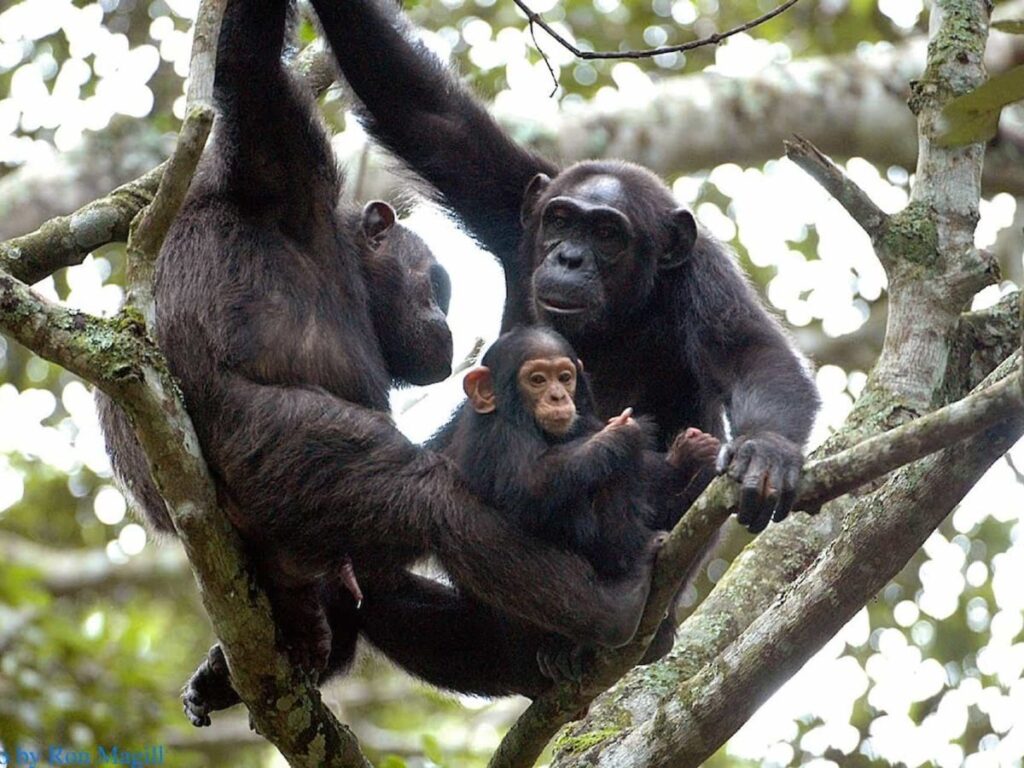
The forest’s steep terrain, dense vegetation, and perpetual mist create an atmospheric setting where every trek feels like exploring a lost world. Towering mahogany trees, tangled vines, exotic orchids, and the constant chorus of birds and primates immerse you completely in this remarkable ecosystem.
The Chimpanzee Tracking Experience
Your adventure begins early at Nyungwe’s park headquarters or designated trailheads where rangers brief groups on tracking protocols, safety procedures, and what to expect. Unlike gorillas, chimpanzees are highly mobile and arboreal, spending significant time in forest canopy where they feed, socialize, and rest, making tracking more challenging but equally rewarding.
Treks typically last 2-5 hours depending on the chimpanzees’ location, though they can occasionally extend longer. Rangers and trackers use their extensive knowledge of chimpanzee ranging patterns and fresh signs—feeding remains, nests, and vocalizations—to locate habituated groups. The moment you hear their distinctive pant-hoots echoing through the forest, anticipation builds knowing an encounter is imminent.
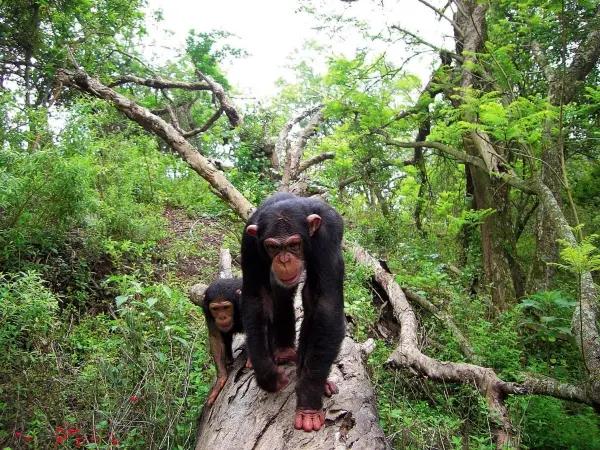
Once located, you’ll spend one hour observing these fascinating primates. Chimpanzees are constantly active—swinging acrobatically through trees, foraging for fruits and leaves, grooming each other meticulously, playing boisterously, and engaging in complex social interactions. Males display dominance through impressive charging displays, mothers tenderly care for infants clinging to their bodies, and juveniles entertain with playful antics. Their expressive faces, gesturing hands, and emotional vocalizations feel astonishingly familiar, offering profound insights into our own evolutionary origins.
Understanding Chimpanzee Behavior
Chimpanzees live in fission-fusion societies where community members split into smaller subgroups that change composition throughout the day. This social flexibility means encounters vary significantly—you might observe large feeding parties numbering 20-30 individuals or intimate groups of 3-5 chimps. The unpredictability adds excitement to every trek.
These intelligent apes use tools, hunt cooperatively, engage in warfare-like conflicts between communities, and demonstrate complex emotions including empathy, grief, and joy. Observing their sophisticated behaviors and intricate social dynamics provides fascinating glimpses into primate intelligence and evolution.
Permits, Costs, and Booking
Chimpanzee tracking permits cost $90 per person—significantly more affordable than gorilla permits—and should be booked in advance, especially for peak seasons from June to September and December to February. Permits can be purchased through the Rwanda Development Board or authorized tour operators. Each tracking group accommodates up to eight visitors, and permits allow one trek to see one chimpanzee community for one hour.
Participants must be at least 15 years old, and anyone showing illness will be excluded to protect chimpanzees from human diseases. Maintaining a seven-meter distance, avoiding direct eye contact that chimps interpret as threatening, and speaking quietly are essential rules.
Preparing for Your Trek
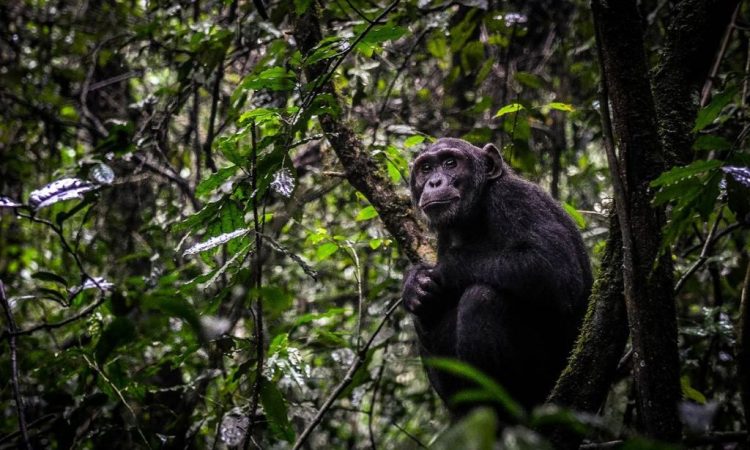
Moderate fitness helps navigate Nyungwe’s steep, muddy trails, though rangers accommodate various ability levels when possible. Essential gear includes waterproof hiking boots with good ankle support, long pants and sleeves for protection against stinging nettles and vegetation, rain jackets (rain occurs frequently), gardening gloves for gripping plants, insect repellent, and plenty of water. Porters are available to carry backpacks and assist on challenging sections—a service supporting local communities while making your trek more comfortable.
Beyond Chimpanzee Tracking
Nyungwe offers additional adventures including the spectacular canopy walkway suspended 50 meters above the forest floor, colobus monkey tracking, numerous hiking trails ranging from easy nature walks to strenuous full-day treks, and exceptional birding with over 300 species including 27 Albertine Rift endemics.
An Unmissable Primate Experience
While gorilla trekking rightfully claims headlines, chimpanzee tracking in Nyungwe Forest delivers equally compelling wildlife encounters at more accessible prices. The combination of ancient rainforest atmosphere, chimpanzees’ dynamic behaviors, and opportunities to observe multiple primate species makes this experience an essential component of any comprehensive Rwanda wildlife itinerary, proving that Rwanda’s primate treasures extend far beyond its famous mountain gorillas.
Planning to do some chimpanzee trekking in Nyungwe forest- why not rent a 4×4 car and driver with us for a safe and comfortable trip to the forest. Simply contact us now by sending an email to [email protected] or call us now on +256-700135510 to speak with the reservations team.


